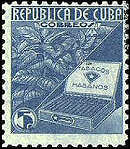 Don’t start making room in you humidors for any Cuban Cohibas just yet, but provisions attached by the House of Representatives to the 2009 Omnibus Appropriations Act rolling back some Cuba sanctions are likely to be approved by the Senate. At least that’s the word from Senate majority leader Harry Reid.
Don’t start making room in you humidors for any Cuban Cohibas just yet, but provisions attached by the House of Representatives to the 2009 Omnibus Appropriations Act rolling back some Cuba sanctions are likely to be approved by the Senate. At least that’s the word from Senate majority leader Harry Reid.
Three sections of the Omnibus Appropriations Act deal with the Cuba Sanctions program. Section 620 amends the Trade Sanctions Reform and Export Enhancement Act of 2000, commonly known as TSRA, to provide for a “general license” to travel to Cuba in connection with “marketing and sale of agricultural and medical goods.” In OFAC-speak, this means in effect that licenses would no longer be required for such travel. Currently, individuals seeking to travel to Cuba in connection with TSRA transactions need to apply for a specific license. And, although such licenses are generally granted, the specific license requirement can result in delays and added expense in connection with such travel.
Second, section 621 prohibits the expenditure of any funds to enforce amendments to “section 515.560 and section 515.561 of title 31, Code of Federal Regulations, related to travel to visit relatives in Cuba, that were published in the Federal Register on June 16, 2004.” Those amendments, among other things, narrowed the definition of relatives that could be visited, limited such trips to once every three years, imposed a requirement that a specific license be obtained for relative trips that previously could be made under a general license, and decreased the amount of money that could be spent during visits to relatives from $167 per day to $50 per day and $50 per trip. Other amendments to sections 515.560 and 515.561 not involving relatives, such as the amendment allowing authorized travelers to bring back $100 worth of Cuban goods for personal consumption (cigars, of course) would presumably not be affected by section 621.
Finally, section 622 reverses a rule adopted by OFAC requiring that payment be received for TSRA exports to Cuba prior to the ship’s departure from the shipping port. In effect, this eliminated the “cash against documents” rule standard for export transactions. Under that rule, the Cuban buyer’s bank (usually a European bank) would pay for the shipment upon presentation to it of a negotiable bill of lading which is considered to be equivalent to the delivery of the goods themselves. Often the goods would have arrived in the Cuban port prior to this presentation of the bill of lading. Requiring payment prior shipment from the U.S. port, and, hence, prior to delivery of the bill of lading to the confirming bank, materially increased the risk of Cuban TSRA exports and made it more difficult for such transactions to be financed or handled by banks.
 Permalink
Permalink
Copyright © 2009 Clif Burns. All Rights Reserved.
(No republication, syndication or use permitted without my consent.)

 Posted by
Posted by  Category:
Category: 

